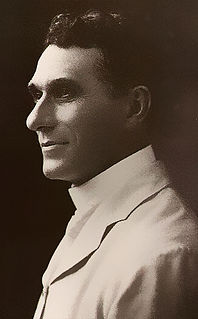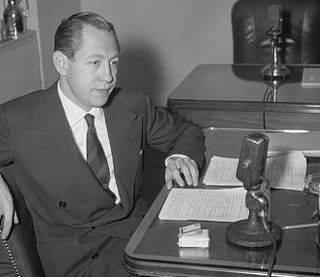A Quote by John Ruskin
... A power of obtaining veracity in the representation of material and tangible things, which, within certain limits and conditions, is unimpeachable, has now been placed in the hands of all men, almost without labour. (1853)
Related Quotes
The soul, when accustomed to superfluous things, acquires a strong habit of desiring things which are neither necessary for the preservation of the individual nor for that of the species. This desire is without limit, whilst those which are necessary are few in number and restricted within certain limits; but what is superfluous is without end.
Statesmen and legislators, standing so completely within the institution, never distinctly and nakedly behold it. They speak of moving society, but they have no resting-place without it. They may be men of a certain experience and discrimination, and have no doubt invented ingenious and even useful systems, for which we sincerely thank them; but all their wit and usefulness lie within certain not very wide limits. They are wont to forget that the world is not governed by policy and expediency.
Confusion conditions activity, which conditions consciousness, which conditions embodied personality, which conditions sensory experiences, which conditions impact, which conditions mood, which conditions craving, which conditions clinging, which conditions becoming, which conditions birth, which conditions aging and death.
In some conditions, the architecture of textile is more relevant than in other conditions or the opacity of the material form. Pattern in the world of scarce materiality and a hybridity becomes a way of creating a new authenticity. Sometimes there is a certain kind of nobility of a group of materials literally of the earth, which had a certain nobility of presence, but is very different from the materials we have now.
If the way which I have pointed out as leading to this result (i.e., power over the emotions by which the wise man surpasses the ignorant man) seems exceedingly hard, it may nevertheless be discovered. Needs must it be hard, since it is so seldom found. How would it be possible, if salvation were ready to our hand, and could without great labour be found, that it should be by almost all men neglected? But all things excellent are as difficult as they are rare.
We are compelled by reflection to recognize that God is not to be placed against the material world [as in Christianity], but must be placed as a 'divine power' or 'moving spirit' within the cosmos itself ... All the wonderful phenomena of nature around us, organic as well as inorganic, are only various products of one and the same original force.
This is the law of prosperity: When apparent adversity comes, be not cast down by it, but make the best of it, and always look forward for better things, for conditions more prosperous. To hold yourself in this attitude of mind is to set into operation subtle, silent, and irresistible forces that sooner or later will actualize in material form that which is today merely an idea. But ideas have occult power, and ideas, when rightly planted and rightly tended, are the seeds that actualize material conditions.
Euripides seems to have felt that the dignified perfection of Sophocles could be challenged only by novelty and irresponsibility. The religious conditions of the Dionysian festival kept him within certain bounds. But within the imposed limits Euripides was as profane as he dared to be, making melodrama of the divine realities which his predecessors accepted religiously, using the stage merely as a convenience for popularizing his own eccentric values.
Men are qualified for civil liberty in exact proportion to their disposition to put moral chains upon their own appetites…in proportion as they are more disposed to listen to the counsels of the wise and good, in preference to the flattery of knaves. Society cannot exist, unless a controlling power upon will and appetite be placed somewhere; and the less of it there is within, the more there must be without. It is ordained in the eternal constitution of things, that men of intemperate minds cannot be free. Their passions forge their fetters.
it was the United States which first established general suffrage for men upon the two principles that 'taxation without representation is tyranny' and that governments to be just should 'derive their consent from the governed.' The unanswerable logic of these two principles is responsible for the extension of suffrage to men and women the world over. In the United States, however, women are still taxed without 'representation' and still live under a government to which they have given no 'consent.






































